After a fairly quiet summer––outside of a few gems––the fall movie season is near and there’s much to anticipate. As we do each year, after highlighting the best films offered thus far, we’ve set out to provide an overview of the titles that should be on your radar––and while some dates will certainly shift and some films added, it’s quite a promising lineup.
Featuring 40 films, the below preview includes both the best we’ve already seen (with full reviews where available) and the anticipated with (mostly) confirmed release dates over the next four months. A good amount will premiere over the next few weeks at Telluride, Venice, TIFF, and NYFF, so check back for our reviews.
The Cathedral (Ricky D’Ambrose; Sept. 2)

What makes the fabric of our upbringing? The memories we’ll reflect on after those years have passed are often not what we may hold onto in a moment filtered and refracted through a thousand more experiences. Following his hour-long debut feature Notes on an Appearance, Ricky D’Ambrose’s Bressonian style continues with The Cathedral, a less intellectually rigorous outing that still impresses with its sense of personal significance, recreating slivers of a life experience over some two decades to form a vivid recollection of both the fracturing of a family and the United States at large. It’s an ambitious undertaking for an 87-minute film, and while this lofty aim can result in a few passages striking a bit broad, one comes away admiring D’Ambrose’s meticulously committed approach to storytelling. – Jordan R. (full review)
Saloum (Jean Luc Herbulot; Sept. 2)
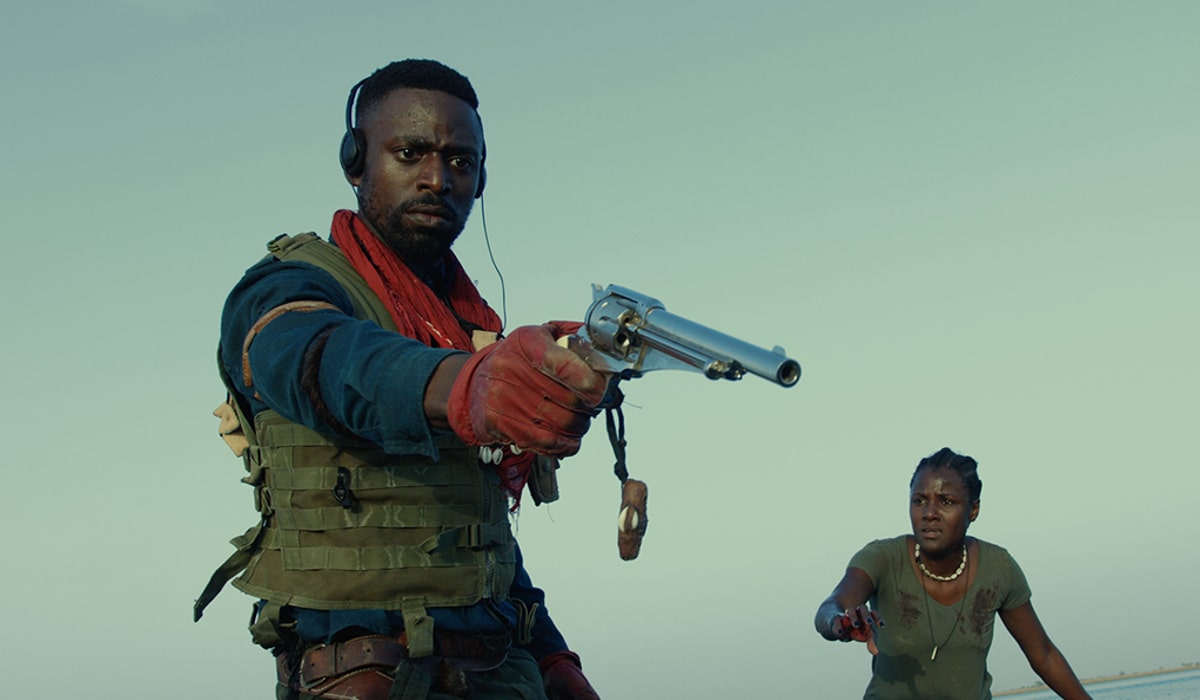
The infamous “Hyenas”—three mercenaries running amok throughout Africa—are caught in the air with gold bars, the drug lord (Renaud Farah’s Felix) they’ve been hired to extract, and a failed fuel tank leaving them with bad and worse options for an emergency landing. The Guinea-Bissau authorities won’t let them leave without a fight on the ground and they’ve surely alerted their Senegalese counterparts already, but Chaka (Yann Gael) knows of a secret beach from his past where they might be able to lay low and find the materials to repair their plane’s damage. Rafa (Roger Sallah), the muscle to Chaka’s brains, doesn’t like the idea while Minuit’s (Mentor Ba) mysticism has him believing their leader is hiding come crucial details, but they follow him just the same. – Jared M. (full review)
Hold Me Tight (Mathieu Amalric; Sept. 9)

One of our greatest actors (in any language) directing one of our greatest actresses (ditto) is not per se some guarantee of rousing success, making Hold Me Tight that much more gratifying an experience. Mathieu Amalric’s slippery story of a mother abandoning her life, family, and seemingly entire sense of self is animated by a performance confirming Vicky Krieps has little ceiling to her capabilities. Well after the film’s end its mysteries remain, images linger. – Leonard P.
Speak No Evil (Christian Tafdrup; Sept. 9)
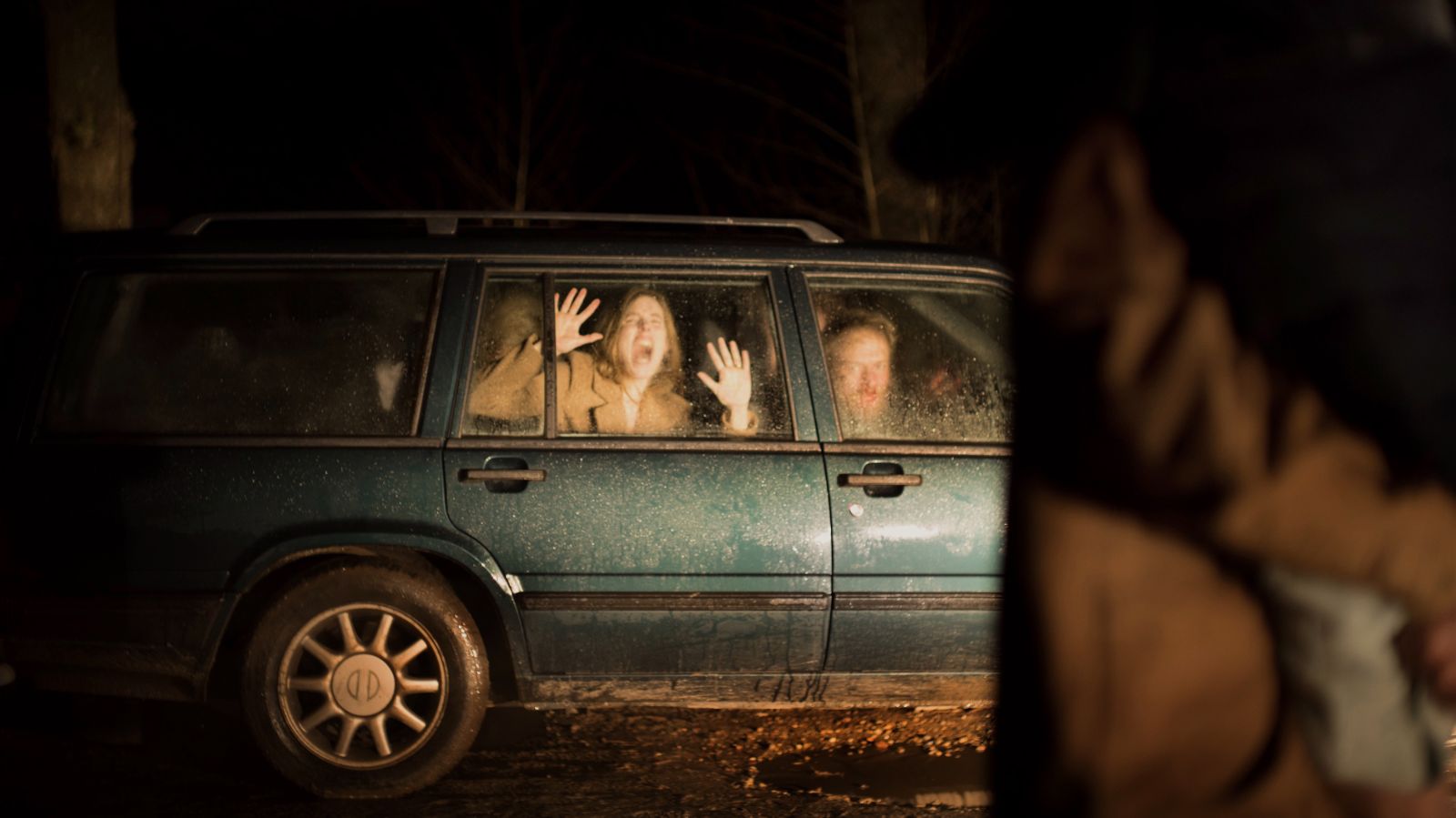
Speak No Evil is terrifying, shocking, and deeply, deeply unsettling. There’s no getting around the upset factor. Audiences who catch this Sundance entry from Denmark should be warned: this one’s gonna hurt. The latest from Christian Tafdrup has the brutal shock value of George Sluizer’s The Vanishing and gut-punching, visceral impact of Haneke’s Funny Games. Speak No Evil does not reach the level of ingenuity and freshness found in those similarly potent antecedents. But what it lacks in originality is compensated in chilling execution. – Chris S. (full review)
Moonage Daydream (Brett Morgen; Sept. 16)
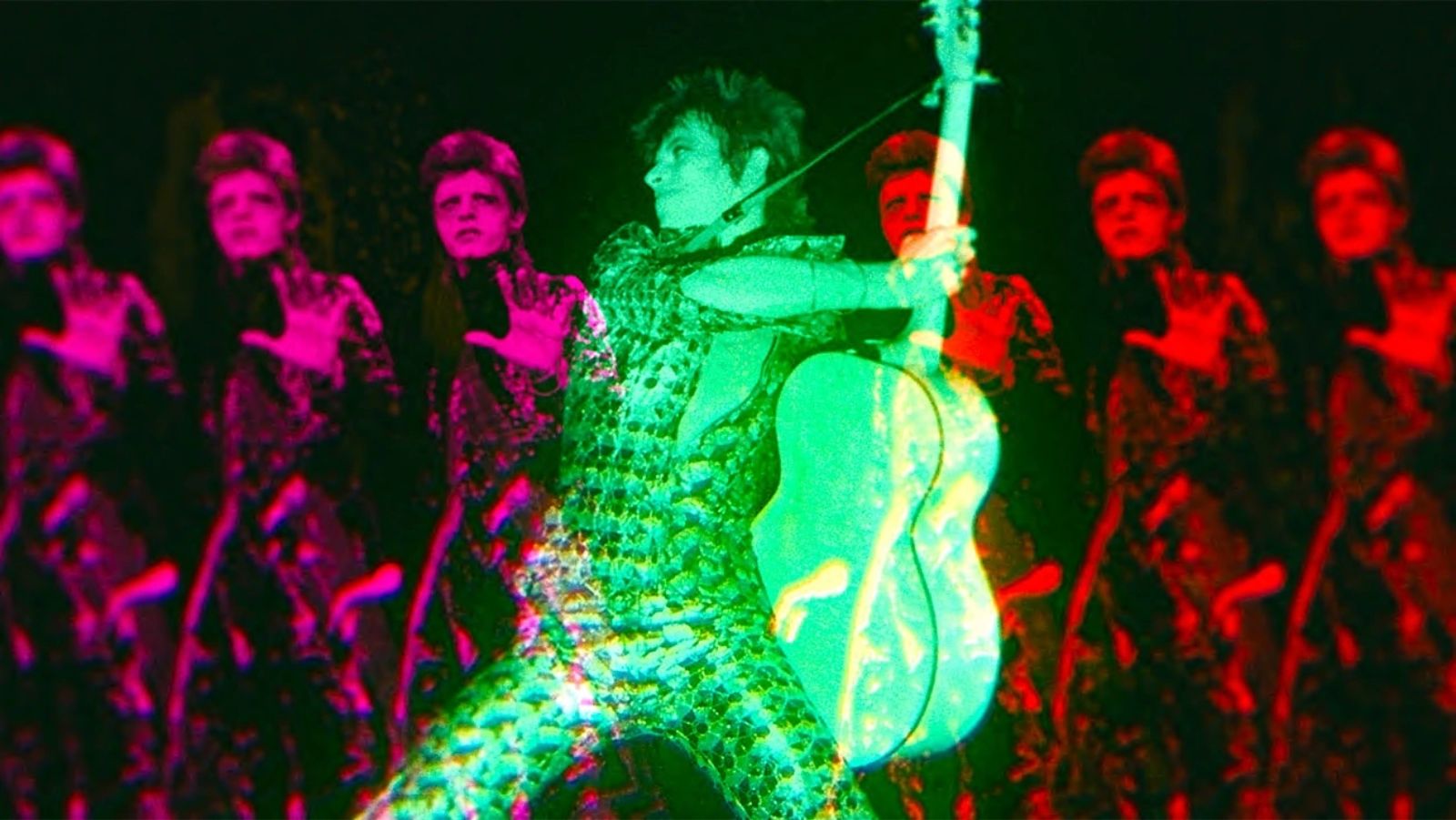
Brett Morgen—venerated documentarian behind Cobain: Montage of Heck and Jane—is the first filmmaker to land a project sanctioned by the Bowie estate. He did not take this for granted. Moonage Daydream is a radiant, psychedelic voyage through the artist’s life, soul, and work that offers a novel approach, gobs of unseen footage, and cosmic insight into Bowie’s ontologies from the demigod himself. – Luke H. (full review)
Riotsville, USA (Sierra Pettengill; Sept. 16)
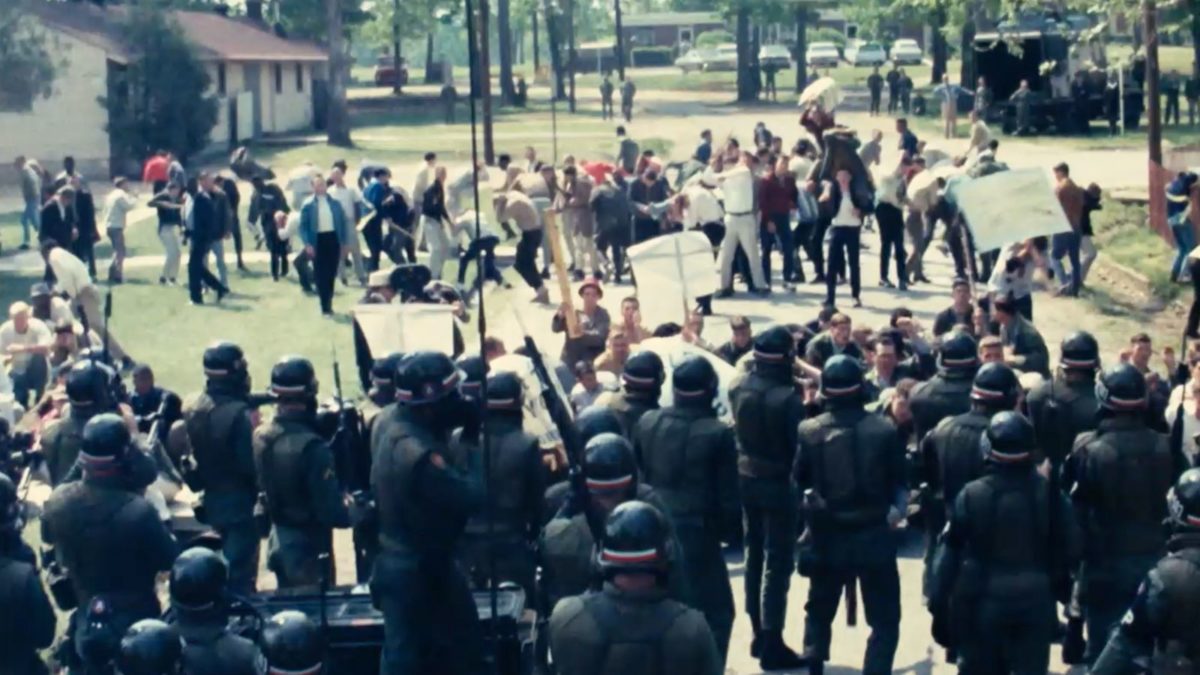
Riotsville isn’t just a place. It’s an idea; a fiction written by the enforcers of order to “demonstrate the presence of a superior force.” Riotsville is portable and meant to be transplanted no matter the material conditions of what it may disturb. Riotsville is violence done to civilians in the name of maintaining their own civilized society. To put it bluntly: Riotsville is federally funded fascism, and as director Sierra Pettengill’s urgent, meticulously collaged documentary outlines, it laid the foundation for the tactics and overwhelming funding of police brutality we see today. – Shayna W. (full review)
The African Desperate (Martine Syms; Sept. 16)
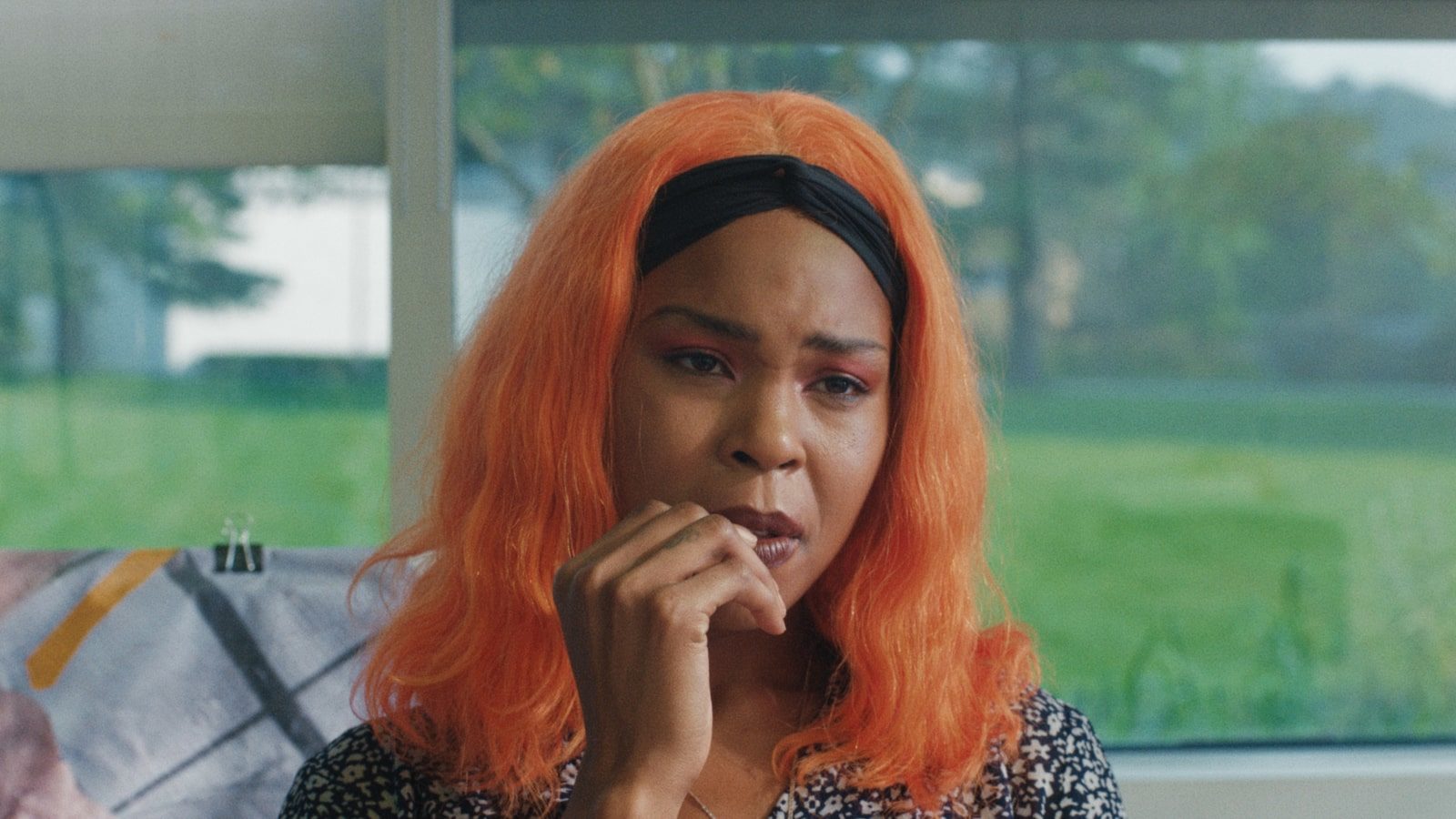
Early into Martine Syms’ The African Desperate, MFA finalist Palace (Diamond Stingily) sits for her last exam in an upstate New York art school tucked deep in the woods. It’s the end of a three-year voyage, the kind of moment that should trigger swaths of pride and relief. But Palace, a Black student in an exceedingly white college, is frustrated, tired, on the verge of a breakdown. Her art has already shown at the Venice Biennale, a feat her all-Caucasian examiners don’t really know how to respond to. (Did she earn a spot because of talent, or…?) Even after they christen her a Master of Fine Arts, the mix of animosity and envy lingers acridly in the room. “There are lots of female artists your age and race making the same stuff you’re doing,” a professor chides her over drinks, “how are you going to differentiate yourself?” – Leonardo G. (full review)
Catherine Called Birdy (Lena Dunham; Sept. 23)
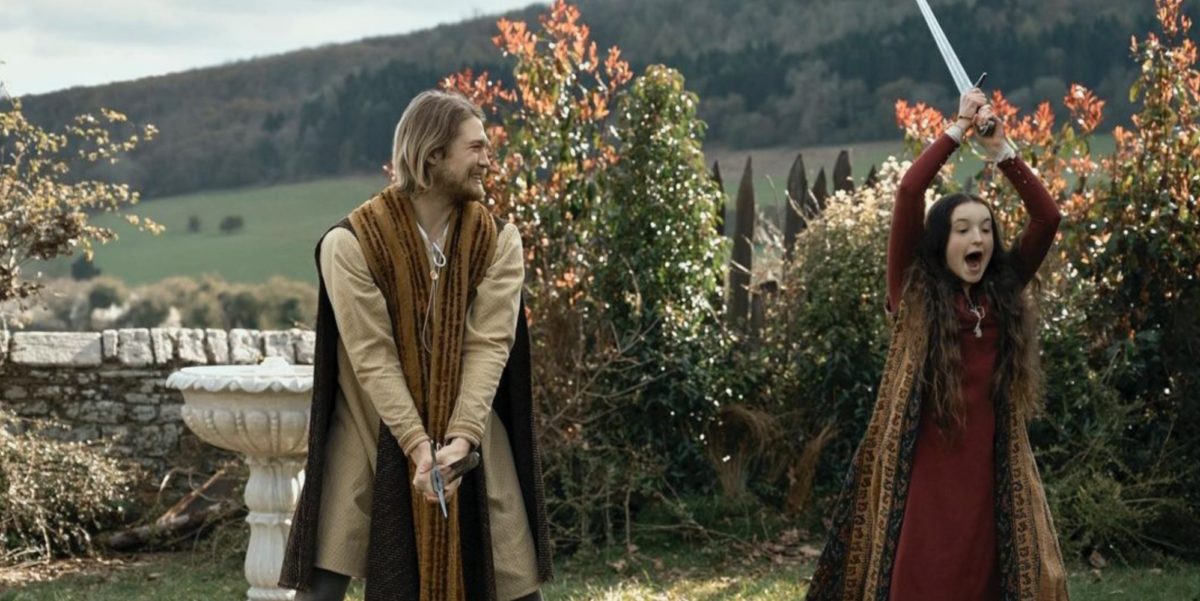
A good year for Lena Dunham fans, most of all those who crave films about a girl’s unusual, tempestuous coming-of-age. With the excellent Sharp Stick (about which we recently spoke to Dunham) still rolling into theaters, a fall release looms for Catherine Called Birdy, her adaptation of Karen Cushman’s beloved children’s novel—suggesting a tamer project than her latest, but that’s a) not saying much and b) hardly suggesting a change of pace. Being that Catherine concerns a girl (in England circa 1290) who must fight off suitors her parents sell her to for money, the material seems suited to Dunham’s interest in gender roles and autonomy. But (just as importantly) the preview looks plainly funny, with the added bonus that Amazon’s money is clearly well-geared towards creating a period piece. – Leonard P.
Petrov’s Flu (Kirill Serebrennikov; Sept. 23)
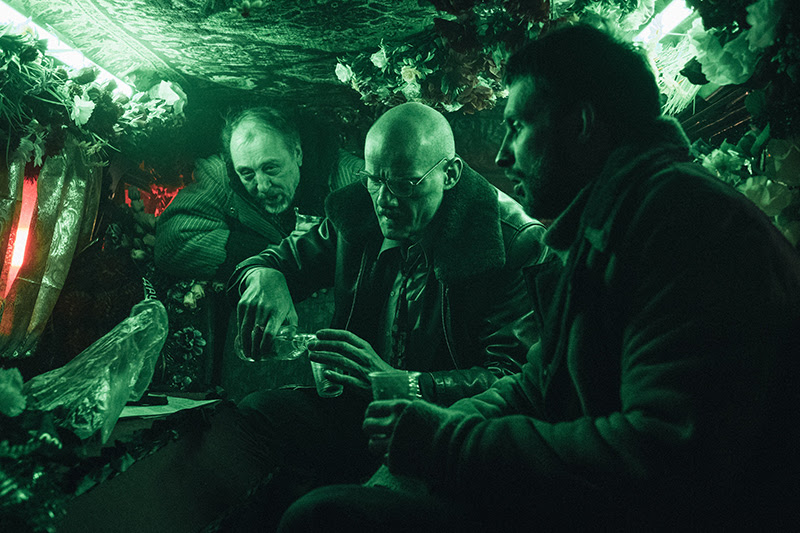
Petrov’s Flu opens on a stuffy commute—a Moscow bus in the early years of post-Soviet Russia. The eponymous protagonist is already bent over a handrail, stricken with his affliction. The mood is fevered, almost circus-like, the lighting like pea soup. In a moment of madness, Petrov (played by Semyon Serzin) is dragged from the bus by militiamen in Mexican wrestling masks. Hard rock plays. He takes a gun and joins their firing squad, mowing down some nameless humans. The mind briefly wanders to Brazil, and somehow Songs from the Second Floor. – Rory O. (full review)
Blonde (Andrew Dominik; Sept. 28)

Outside a certain James Cameron blockbuster, Andrew Dominik’s Blonde receives the award for the most talked about film of the fall that has yet be released. Long in the works, then shot a few years back, it will finally debut at Venice before landing on Netflix later next month. With Ana de Armas taking the role of Marilyn Monroe, the release window indicates that coveted sweet spot of boldly artistic filmmaking that does a fine job isolating the milquetoast taste of Academy voters. Regardless of its response, one thing can be agreed upon: let’s not wait another decade for the next Dominik film. – Jordan R.
God’s Creatures (Saela Davis and Anna Rose Holmer; Sept. 30)
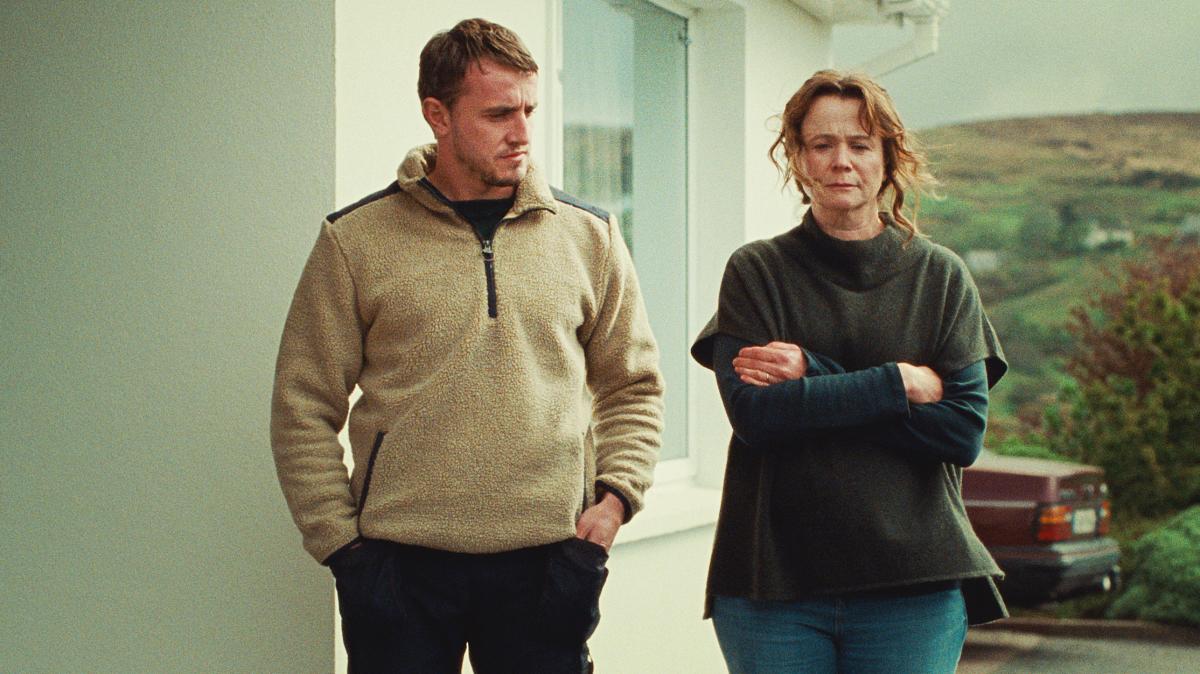
Some actors slip into familiar roles like old sweaters. Emily Watson might prefer a raincoat. The actress first graced our screens in Breaking the Waves for Lars von Trier: her eyes peeking out from under a wooly hat, whipped by wind and rain, and carrying the sins of an entire town. The great actress faces those same elements again in God’s Creatures, trading von Trier’s nightmarish vision of the Scottish highlands for a doom metal take on Ireland’s Atlantic coast. – Rory O. (full review)
Dead for a Dollar (Walter Hill; Sept. 30)
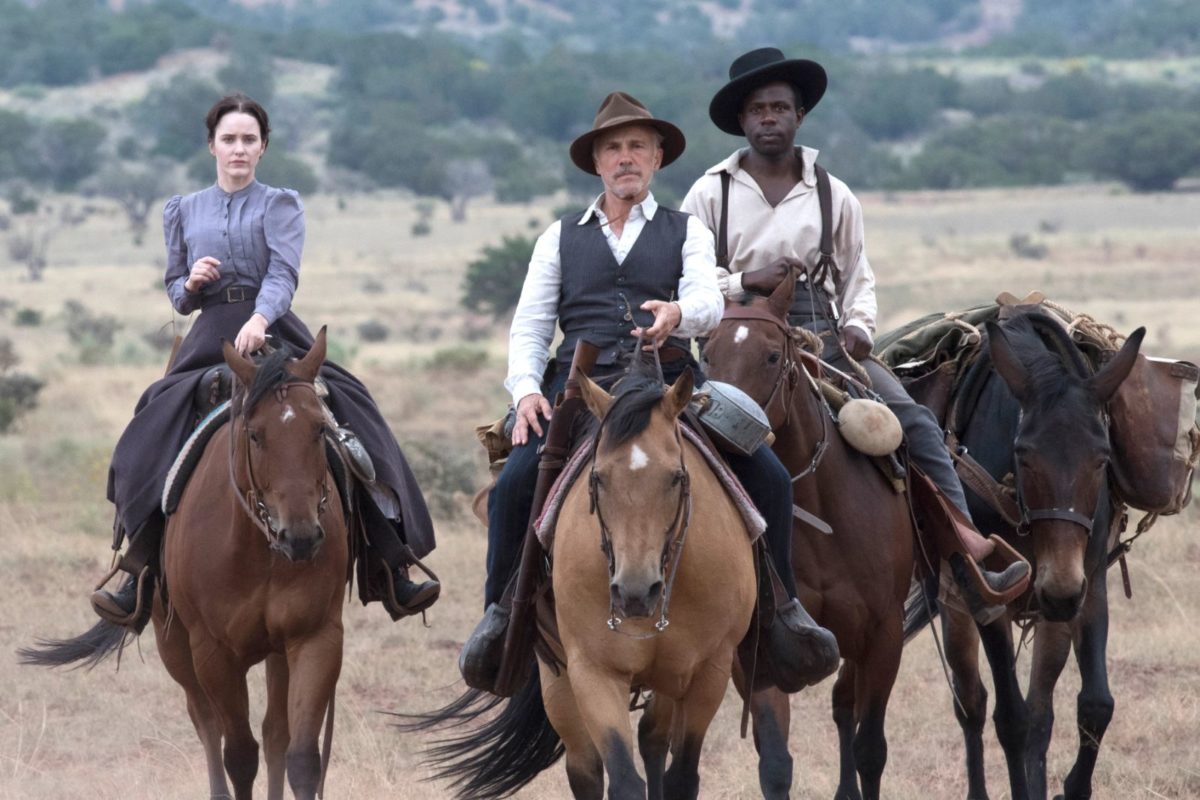
In a Hollywood landscape that seems less and less concerned with adult-minded genre fare, it’s refreshing to see that The Warriors and 48 Hrs. director Walter Hill is returning this fall with a new Western. Led by Christoph Waltz, Willem Dafoe, Rachel Brosnahan, Brandon Scott, Warren Burke, Benjamin Bratt, and Hamish Linklater, Dead for a Dollar follows a bounty hunter on the search for a missing wife of a businessman. Set to premiere shortly at Venice and then arrive in theaters quickly after, check back for our review soon. – Jordan R.
TÁR (Todd Field; Oct. 7)
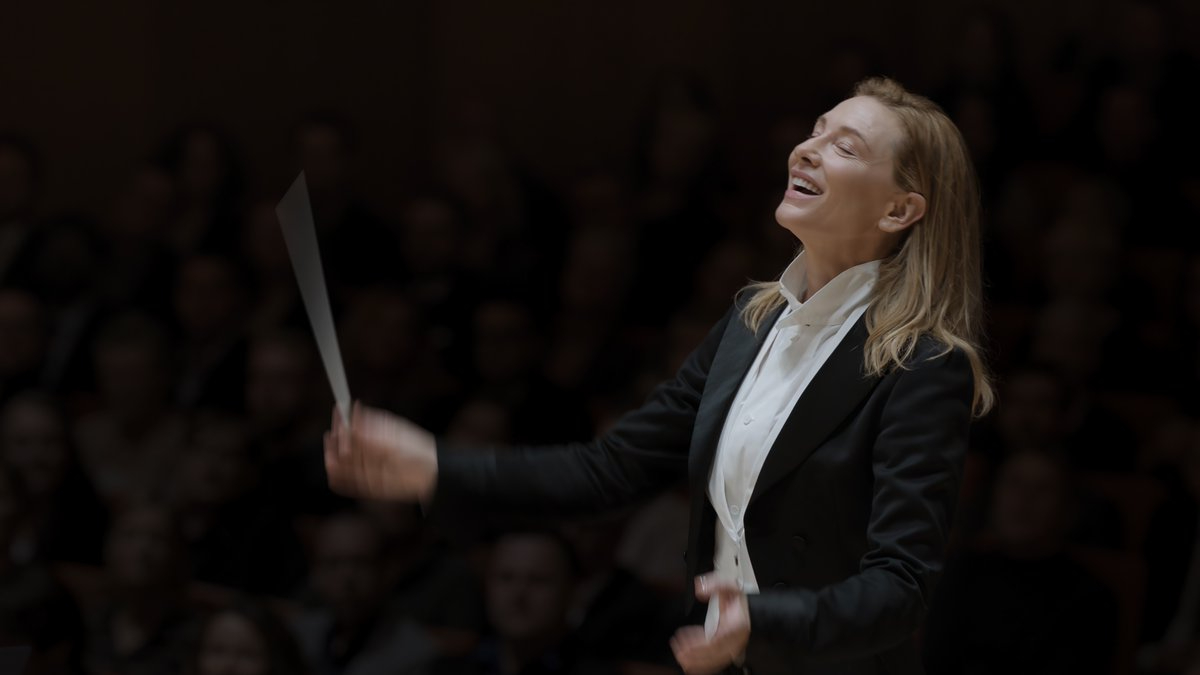
With a Malick-sized break from filmmaking—though not for lack of trying to get projects off the ground—Todd Field finally stepped behind the camera last year with TÁR. Led by Cate Blanchett and a supporting cast including a pair of international cinema’s greatest talents, Nina Hoss and Noémie Merlant, the long-awaited new feature by the director of In the Bedroom and Little Children follows a world-renowned musician who is just days away from recording the symphony that will take her to the very heights of her already formidable career. Scored by Icelandic composer Hildur Guðnadóttir (Joker, Sicario: Day of the Soldado), reactions will arrive soon from Venice. – Jordan R.
Triangle of Sadness (Ruben Östlund; Oct. 7)

Ruben Östlund might like his fish in a barrel but he’s a ruthless shot. Following a Palme d’Or win for The Square, the Swedish filmmaker returns to Cannes in competition, and if the contemporary art scene had taken the brunt of that sometimes brilliant, sometimes baggy film (the rare example of an art satire that actually worked), his latest has both the fashion world and the 1% solidly in its sights. With a title derived from an industry term for the worry lines on a person’s forehead, Triangle of Sadness is a film as vast as the sea itself, Östlund’s first real epic. It is his White Lotus, his “wafer-thin mint,” and his Discreet Charm of the Bourgeoisie rolled into one: a scatological rinsing of wealth and hubris from a filmmaker who, with each passing effort, only further cements himself as contemporary cinema’s auteur of such things. – Rory O. (full review)
Decision to Leave (Park Chan-wook; Oct. 14)
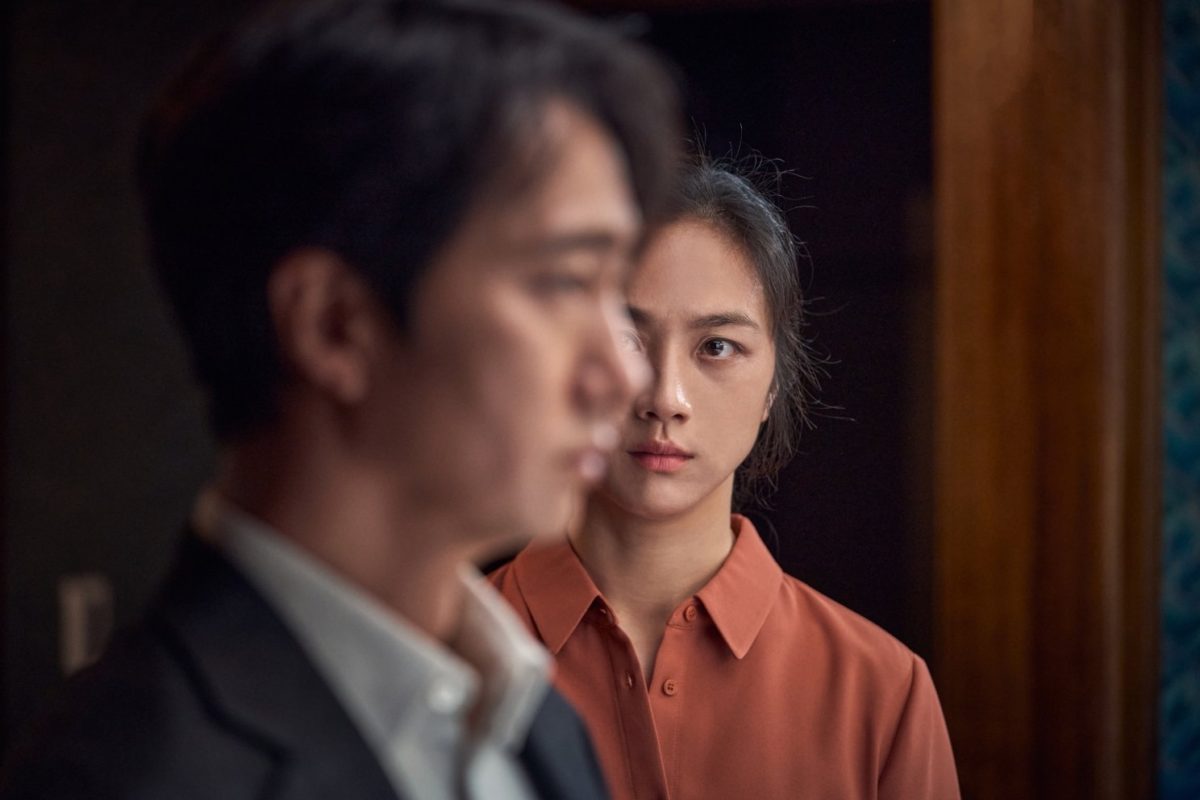
“Congratulations… it’s a murder.” A backwards thing to celebrate? Not when you’re a droll insomniac detective who’s only happy (read: not miserable) when you’re investigating a killing, the likes of which have been absent lately. And especially not when that killing means an encounter with the lowkey crush exponentially consuming your thoughts. Alas, Park Chan-wook––eloquently maximalist writer-director behind Oldboy and The Handmaiden––is no stranger to bizarre characterization. – Luke H. (full review)
Till (Chinonye Chukwu; Oct. 14)
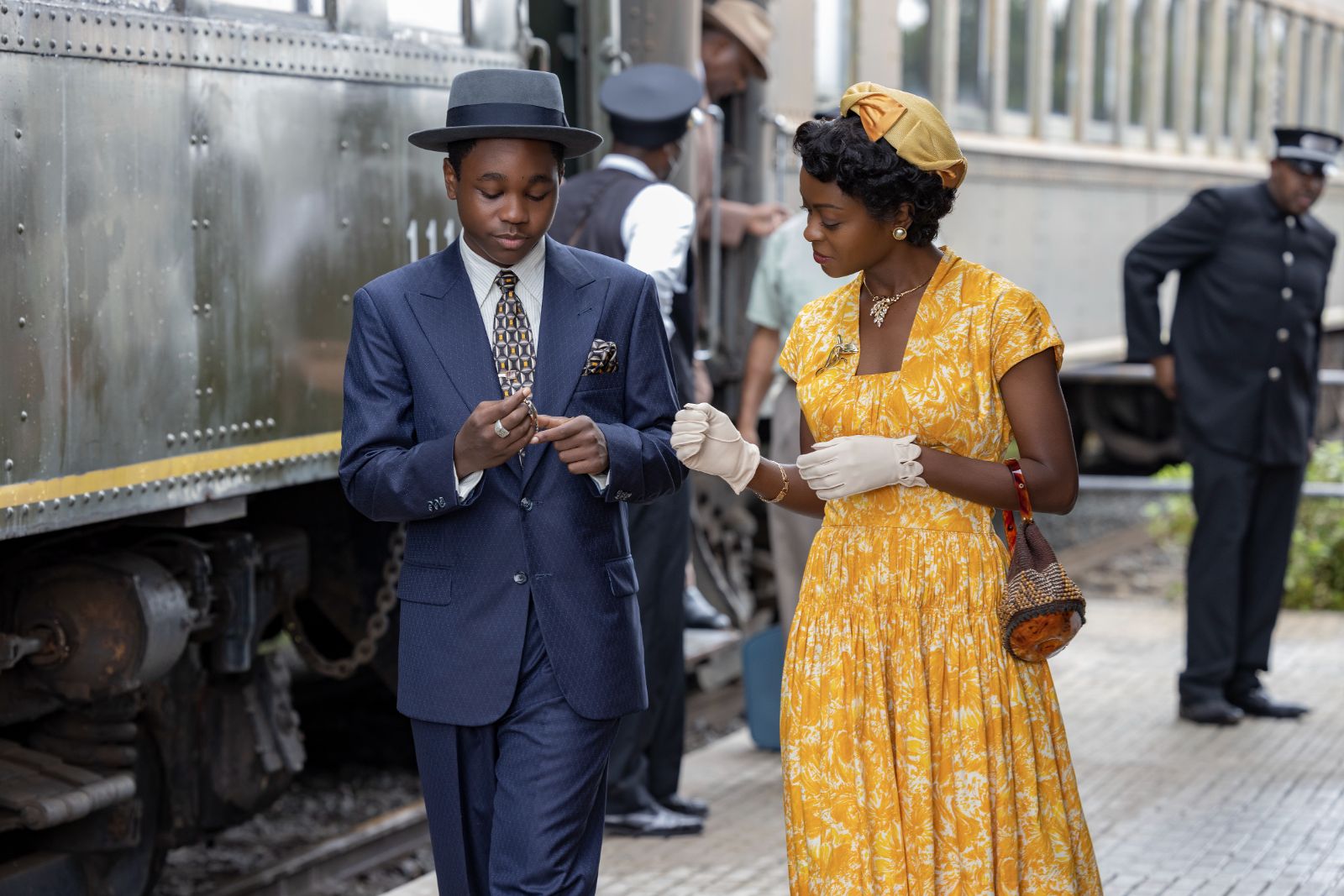
After winning the top prize at Sundance back in 2019 for her Alfre Woodard-led Clemency, director Chinonye Chukwu returns this fall with her first studio feature, Till. Set for a world premiere at the 60th New York Film Festival, the film tells the true story of Mamie Till Mobley’s relentless pursuit of justice for her 14-year-old son, Emmett Till, who in 1955 was lynched while visiting his cousins in Mississippi. Considering the raw emotion she’s been able to evoke around complex subject matter, Chukwu will hopefully repeat here. – Jordan R.
All That Breathes (Shaunak Sen; Oct. 21)
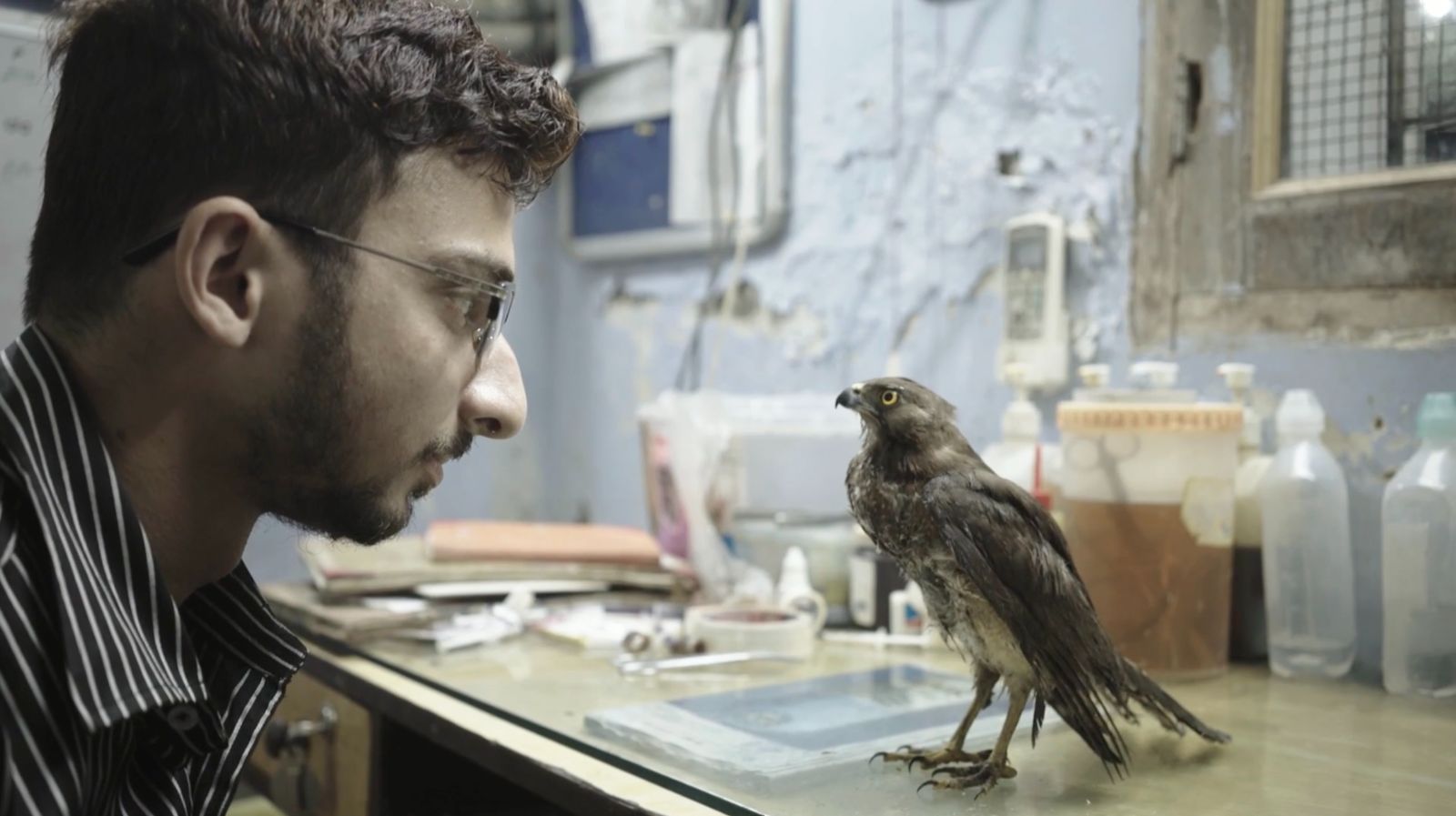
The focal point of All That Breathes is brothers Nadeem Shehzad and Mohammad Saud, who, alongside volunteer Salik Rehman, operate Wildlife Rescue. Their central aim is helping house the protected avian species in Delhi, namely the Black Kites. Over the years their charity has helped treat more than 20,000 birds, the group roaming across the breadth of the city to treat any injured species they can find. They previously received international attention for their efforts, including a 2020 New York Times profile referenced here, but much of their work is impeded by the struggle to receive international funding. This is largely due to other political developments at home, and events in this film coincide with the right-wing populist government’s attempts to prevent people of Muslim descent from migrating to the country––an act of religious bigotry that goes against India’s constitution. A tidal wave of Islamophobia is on the horizon, the brothers fearful because of their own religious backgrounds. – Alistair R. (full review)
The Banshees of Inisherin (Martin McDonagh; Oct. 21)
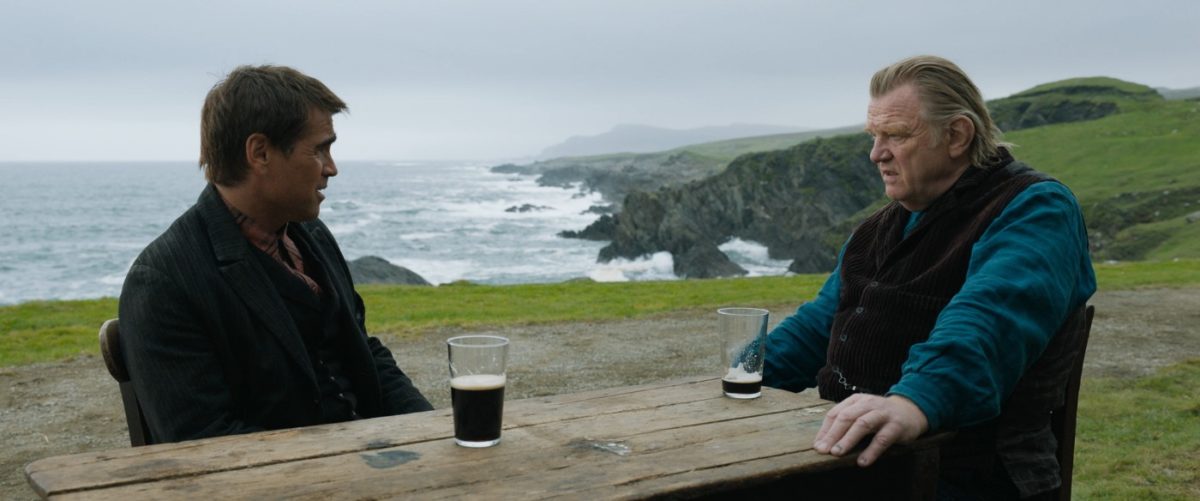
After Seven Psychopaths and Three Billboards Outside Ebbing, Missouri brought him to America with a divisive reaction, British-Irish filmmaker Martin McDonagh returned to Europe for his next feature and brought his two In Bruges stars with him. The Banshees of Inisherin stars Brendan Gleeson and Colin Farrell as two lifelong friends who find themselves at an impasse when one abruptly ends their relationship, setting alarming consequences for both. Barry Keoghan and Kerry Condon fill out the cast, and we’ll get reactions soon from its Venice premiere.
Ticket to Paradise (Ol Parker; Oct. 21)
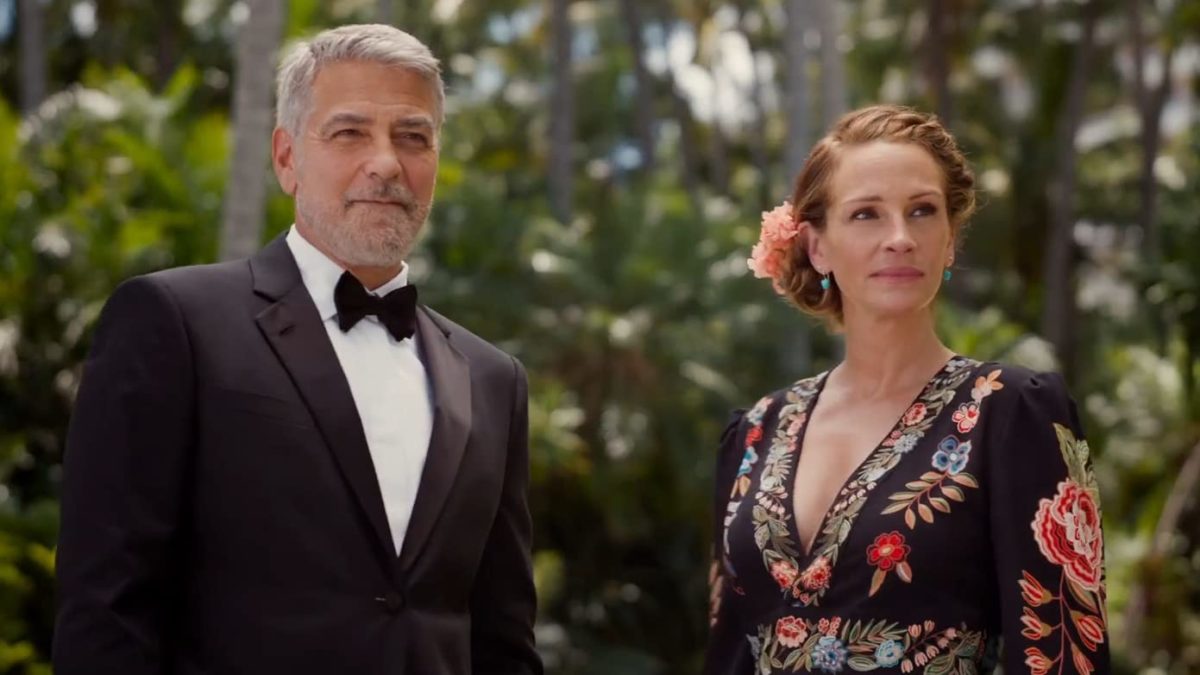
As we lament the decline of bonafide movie star cachet in favor of monstrous CGI spectacles, at least a few films are doing it right this fall. Ticket to Paradise, coming from Mamma Mia! Here We Go Again director Ol Parker, pairs George Clooney and Julia Roberts as a divorced couple who hope to sabotage the wedding of their daughter so she doesn’t make the same mistake they did. With this perfectly screwball / rom-com set-up, it promises a bubbly respite in a season of darker-tinged dramas. – Jordan R.
Brainwashed: Sex-Camera-Power (Nina Menkes; Oct. 21)

Though the different eras of global feminist thought are known as “waves,” which implies successive awakenings of liberation and critique, the film world takes an inordinately long time to develop alongside it. Amidst the social upheavals of the ‘60s, where previously “permissive” sexual content was finally allowed to be seen in mainstream cinema, the industry arguably became even more sexist, lecherous, and restrictive around female subjects. – David K. (full review)
Descendant (Margaret Brown; Oct. 21)
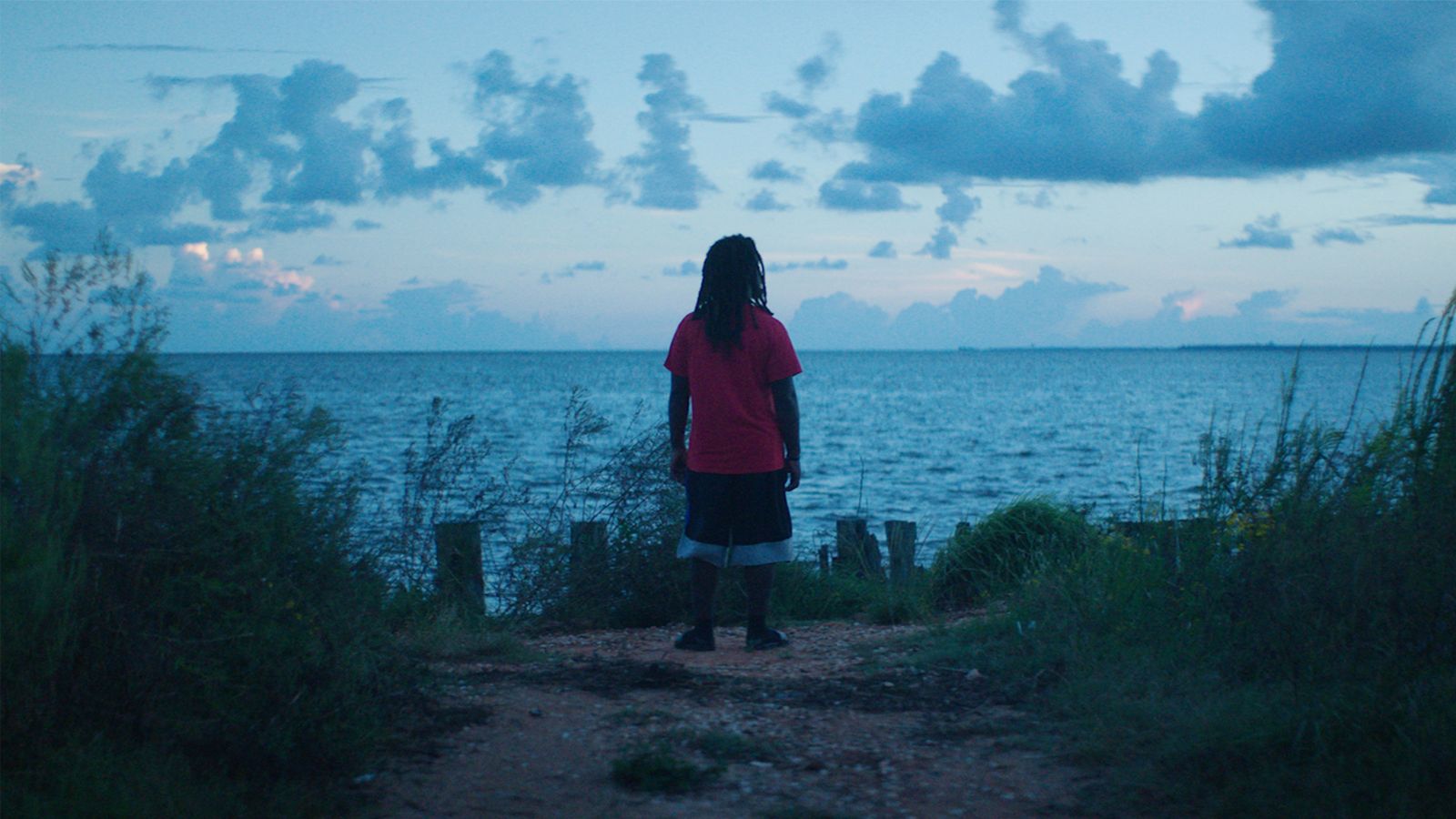
Over half a century after international slave trade was abolished in the United States, Timothy Meaher made a bet that he could transport a ship of captives from Africa to the Alabama coast. As owner of the ship The Clotilda, following the 1860 voyage which brought 110 people from West Africa to Mobile, Meaher covered up his crimes (which could have brought him to death) by burning and sinking the vessel. More than 150 years later, Mobile’s Africatown community––made up of direct descendants whose ancestors were ripped away from their lives of freedom––are searching for truth and closure as the remnants of the slave ship remained a buried mystery. As captured in Margaret Brown’s intimate, powerful documentary Descendant, the quest for answers and the story of how this overlooked community has been marginalized throughout history has ripples far beyond a sunken ship. – Jordan R. (full review)
Armageddon Time (James Gray; Oct. 28)
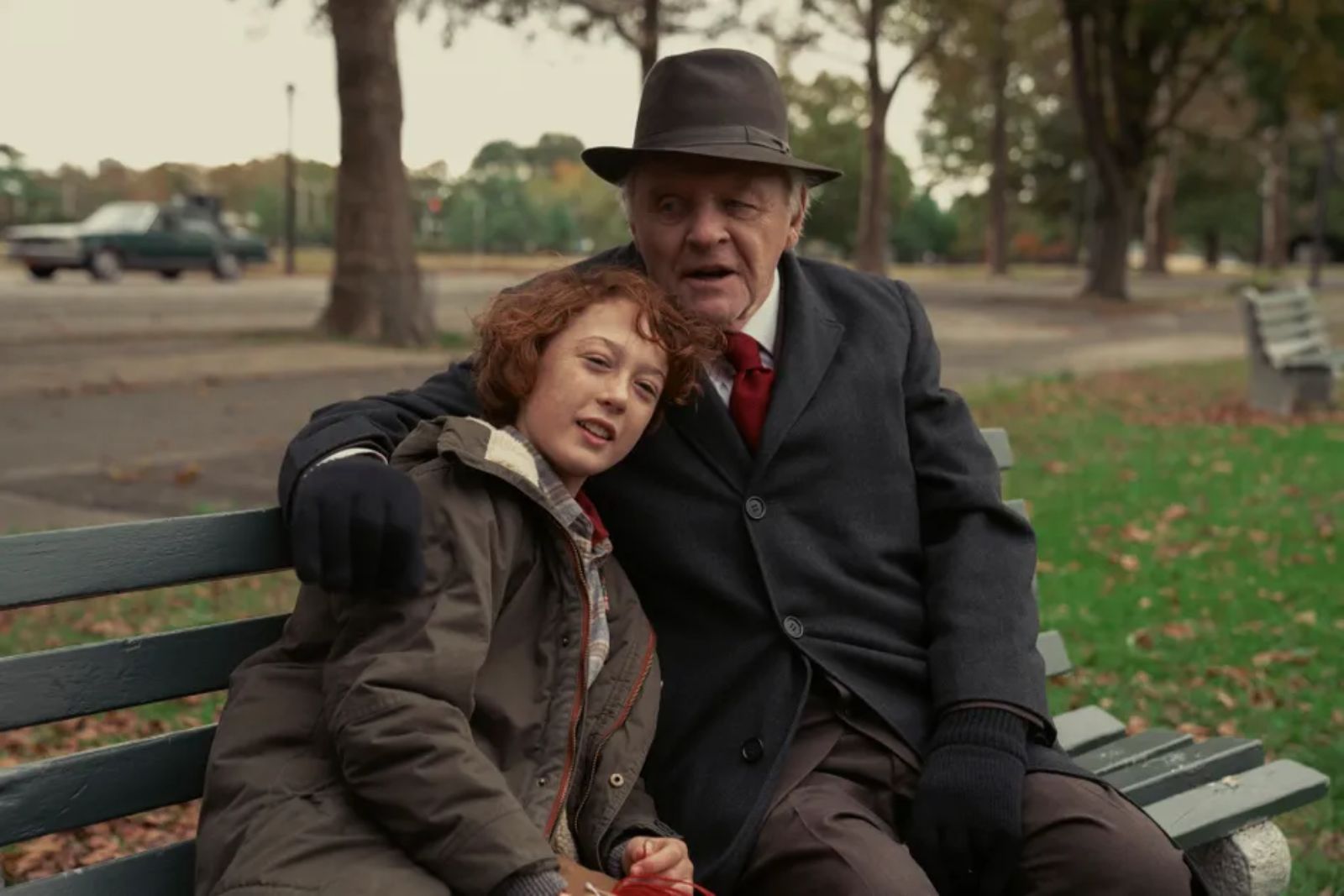
Armageddon Time is the sort of film usually invoked as a “portrait of the nation” or “state of the union address,” something taking the temperature of a country—most likely the United States—at a particular time in history. But it’s also a work that makes self-consciousness a virtue: its wonderful writer-director, James Gray, is informed up to his eyes about the virtues and pitfalls of films like these, and here makes something so idiosyncratically his own but that audiences and critics might still mislabel with one of those aforementioned ideas. – David K. (full review)
The Novelist’s Film (Hong Sangsoo; Oct. 28)

There is a small but growing belief among critics that just as Hong Sangsoo inches toward legendary status (festival omnipresence; evangelized by Richard Brody; Kim Min-hee placing 17th on the New York Times’ top 25 actors of the 21st Century, etc.) his bit might finally be going stale. Whichever side one lands on (you shall find no mutiny here), it will always be hard to resist the calm, casual charms of a work like The Novelist’s Film: a story about the creative process, shot in soft black-and-white, and a mid-range addition that won the Grand Jury Silver Bear at the Berlinale—his most prestigious award to date. – Rory O. (full review)
2nd Chance (Ramin Bahrani; Oct. TBD)

It’s an eerie image. Richard Davis stands out in a field, wearing a kevlar vest, and points a pistol into his belly. Then he pulls the trigger, skips back a bit, and checks his red-burned skin. Over the course of his life, he would do this—shoot himself—192 times, proving the efficacy of his life-saving device in the most visceral and operatic way possible. “A lot of people think I’m stupid for doing this,” he tells the camera before one of these high-wire demonstrations, and for just a moment, an air of unpredictability hangs over this bullet-proof vest magnate’s next move. – Jake K. (full review)
Wendell & Wild (Henry Selick; Oct. TBD)
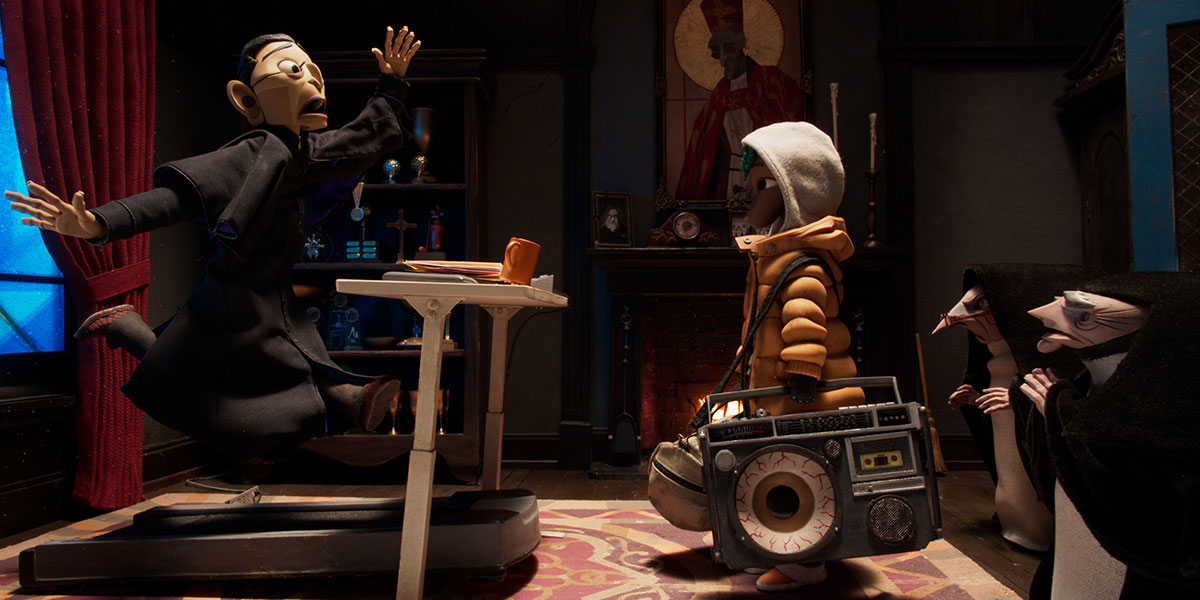
Henry Selick, director of stop-motion classics such as The Nightmare Before Christmas and Coraline, is back after more than a decade—with assistance from the prolifically creative Keegan-Michael Key and Jordan Peele, who produce and provide voices of titular characters Wendell and Wild. (Peele also co-wrote the script, while a score comes from Coraline’s Bruno Coulais.) Wendell (Key) and Wild (Peele) are two demon brothers who must face their arch-nemesis Sister Helly and her goth teen apprentices Kat and Raoul. Selick’s direction, backed by the creative energy of Key and Peele, will be a welcome return for the director—his brand of macabre animation has been sorely missed. – Margaret R.
Something in the Dirt (Justin Benson and Aaron Moorhead; Nov. 11)
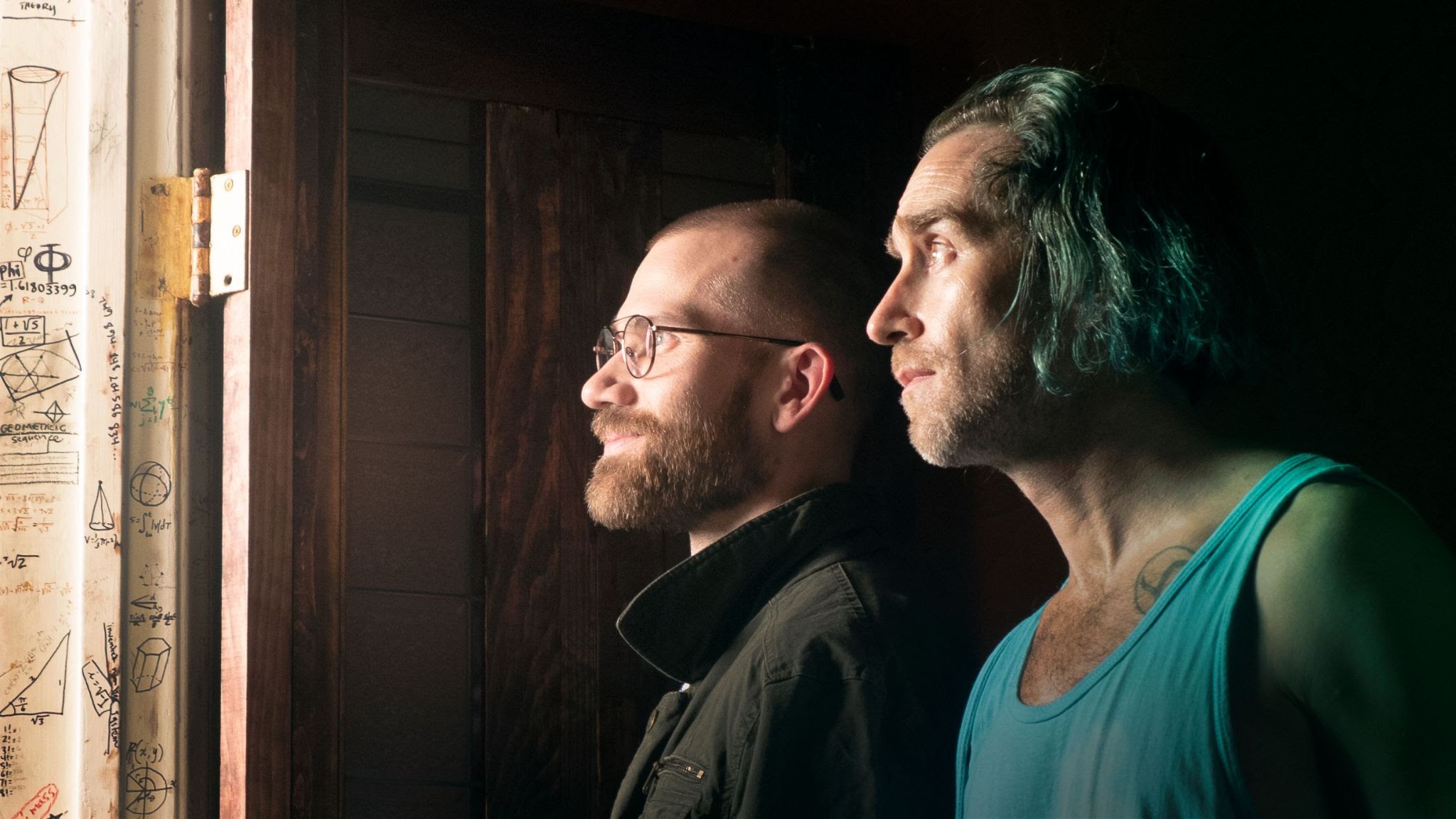
The characters in Justin Benson and Aaron Moorhead’s films shouldn’t be in these situations. They’re out of their depth, caught up on a conspiracy, a cult, or an idea that’s far beyond their grasp. Something in the Dirt doesn’t change that narrative, instead doubling down on the absurd, conspiratorial situations that the filmmakers create, only for their lead actors to be swallowed up by the bigness of what they uncover. Once again using the DIY model, Benson and Moorhead co-direct and co-star in their newest human science-fiction adventure, playing two Los Angeles dudes who interact with a floating crystal. – Michael F. (full review)
The Son (Florian Zeller; Nov. 11)

Following the Oscar-winning success of his debut feature The Father, Florian Zeller’s The Son adapts his play about teen depression. Hugh Jackman and Vanessa Kirby star as a couple whose life is upended when Jackman’s ex, played by Laura Dern, shows up with their troubled teenage son—seemingly of a piece with his debut, treading similar ground of dealing with mental illness and how that affects an entire family. – Erik N.
The Fabelmans (Steven Spielberg; Nov. 11)
It was said right out the gate that The Fabelmans would only be “loosely based” on Steven Spielberg’s adolescence, a too-immediate pairing of public relations and personal statement that suggests a story even American cinema’s premier dreamweaver hesitates to tell. Lest we forget it was first announced in 1999, when Spielberg and sister Anne began developing a film entitled I’ll Be Home—about which the man expressed worry his parents wouldn’t approve, finding it “an insult and won’t share [his] loving yet critical point of view about what it was like to grow up with them.” Make of it what you wish that Spielberg’s father died in August 2020 and The Fabelmans was announced in March 2021. Far as I can tell, it’s high time to come home. – Nick N.
EO (Jerzy Skolimowski; Nov. 18)
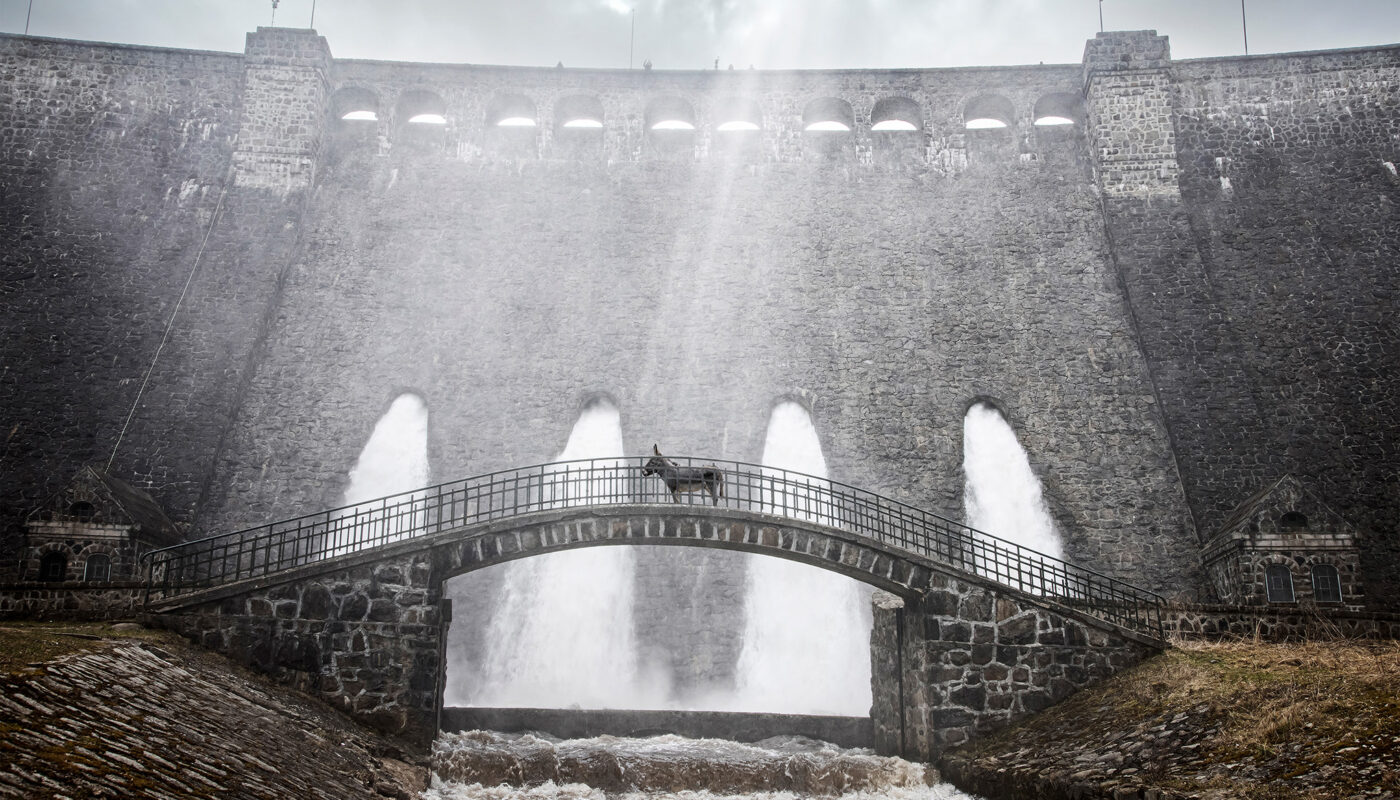
In one of analytic philosopher Ludwig Wittgenstein’s most widely shared quotes, he mused that “if a lion could talk, we would not understand him.” The barrier of language and gulf of understanding between man and animal is the subject of the quite wondrous Eo, a true surprise from the great Polish filmmaker Jerzy Skolimowski, now enjoying his mid-80s. It is adapted—freely inspired may be a better term—from Robert Bresson’s iconic 1966 film Au Hasard Balthazar; from Eo’s opening minutes any memory or sense of that masterpiece’s forbidding stature is banished—we’re dealing with quite a different animal here. No, it isn’t as good. But it’s different, and a companion piece that flatters both that film and itself. – David K. (full review)
The Menu (Mark Mylod; Nov. 18)

Cutting his teeth the last few years directing episodes of prestige television (Succession, Game of Thrones), Mark Mylod returns to the big screen in this culinary comedy produced by Adam McKay. For tapping into the growing star of Anya Taylor-Joy, plus the dark-comic sensibilities of British actors Ralph Fiennes and Nicholas Hoult, it’ll be intriguing to see if any of Mylod’s work on Succession will carry over, bringing a sleek visual style to satire. – Erik N.
She Said (Maria Schrader; Nov. 18)

Five years ago this fall, New York Times reporters Megan Twohey and Jodi Kantor broke the story of Harvey Weinstein’s decades of sexual abuse, a watershed moment for the #MeToo movement and a change for both Hollywood’s inner workings and the culture at large. Their journey has now been adapted into a feature film led by Carey Mulligan and Zoe Kazan, one that has some major players behind the scenes. Directed by Maria Schrader (I’m Your Man) from a screenplay by Oscar-winner Rebecca Lenkiewicz (Ida), shot by Natasha Braier (The Neon Demon), with music by Nicholas Britell (Succession, Moonlight), and produced by Brad Pitt, Dede Gardner, and Jeremy Kleiner for Plan B Entertainment and executive produced by Megan Ellison and Sue Naegle for Annapurna Pictures—the makings of the Spotlight of the season. With a world premiere set for the 60th New York Film Festival, stay tuned for our review.
The Inspection (Elegance Bratton; Nov. 18)
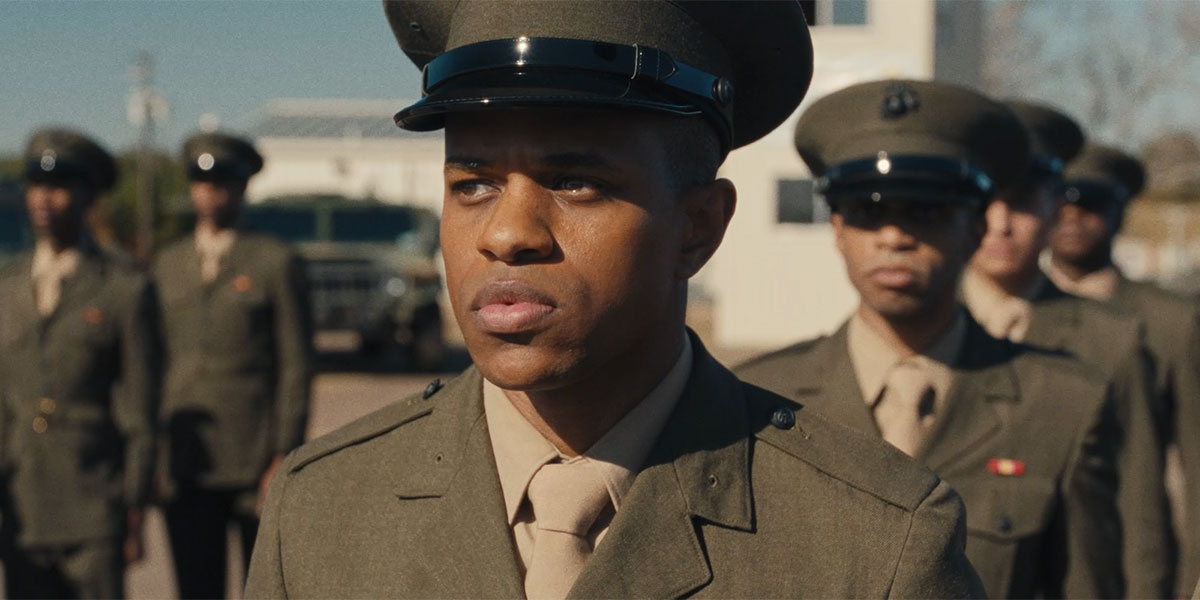
Quickly emerging as one of the most-anticipated fall festival premieres, Elegance Bratton’s narrative debut The Inspection has locked in coveted spots at both TIFF (Opening Night Film of its Discovery section) and NYFF (as Closing Night selection). Featuring Jeremy Pope, Raúl Castillo, McCaul Lombardi, Aaron Dominguez, Bokeem Woodbine, and Gabrielle Union, Bratton draws from his own life to tell the story of a gay Black man navigating military life. As backed by A24, we’re curious if this will be a Moonlight-esque breakthrough for the studio. – Jordan R.
Nanny (Nikyatu Jusu; Nov. 23)
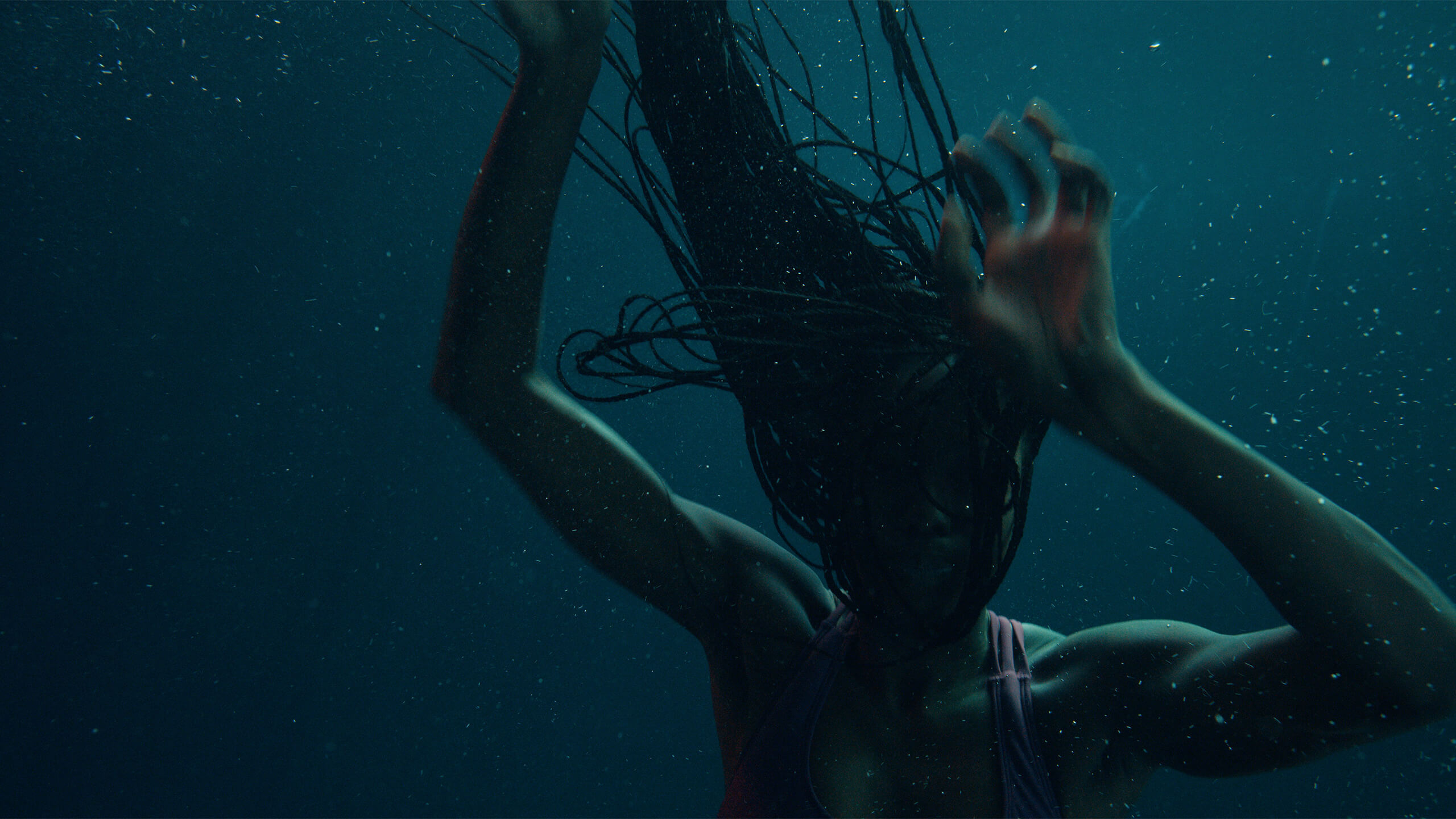
With Nanny, Nikyatu Jusu presents a more haunting depiction of the American Dream. Her feature debut nods to Ousmane Sembène’s seminal Black Girl while distilling the trials her parents, immigrants from Sierra Leone, endured as Jusu grew up in Atlanta—a mix of domestic drama and frightening images to make us fellow outsiders in a suffocatingly insular world. – Margaret R. (full review)
Bones and All (Luca Guadagnino’s Bones and All; Nov. 23)

It sounded like a dark joke upon its original announcement: the director and star of Call Me By Your Name teaming up to make a cannibal drama shortly after a very specific allegation about their former co-star made international headlines. But Luca Guadagnino’s latest, his first film set in the U.S., seems far from an elaborate middle finger. This adaptation of Camille DeAngelis’ novel of the same name follows a young woman (Taylor Russell) who joins a drifter (Chalamet) on a road trip across Reagan’s America as they learn to live on the margins of society. Mark Rylance, Michael Stuhlbarg, André Holland, Jessica Harper, David Gordon Green, Francesca Scorsese, and Chloë Sevigny round out its cast, with Guadagnino’s regular screenwriter David Kajganich penning the script. – Alistair R.
Women Talking (Sarah Polley; Dec. 2)
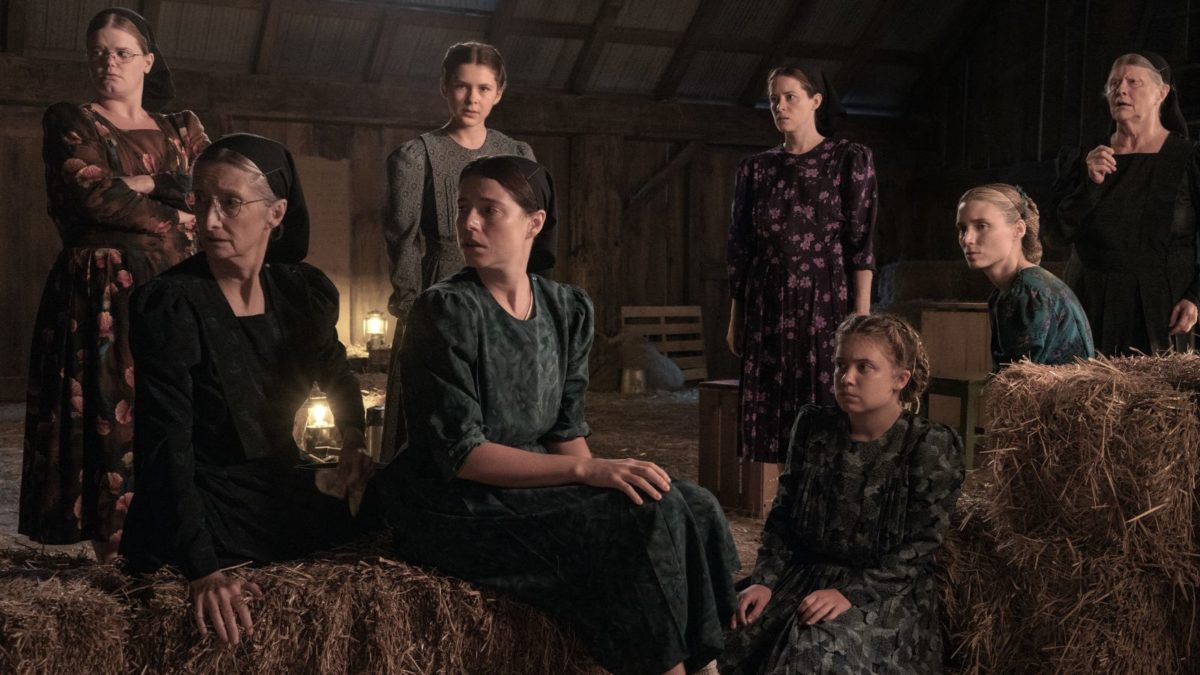
It’s now been over a decade since the last narrative film from actor-turned-director Sarah Polley (Take This Waltz, Away From Her), and her return is quite anticipated. Women Talking, based on Miriam Toews’ novel, features the impressive cast of Frances McDormand, Rooney Mara, Claire Foy, Jessie Buckley, Ben Whishaw, and Judith Ivey. The story centers on a group of Mennonite women who conduct a secret meeting to discuss how the men of their colony have repeatedly drugged and raped them under the guise of a demon looking to punish their sins. With Polley behind camera and this fine ensemble at center, we’re curious how to adapt rather brutal subject matter.
Avatar: The Way of Water (James Cameron; Dec. 16)

Avatar is a misbegotten, often garish exercise whose pleasures—certain VFX remain impressive 12 years on—are hard to square with its follies. But James Cameron knows how to engineer sci-fi sequels like no other, and one can hope (against hope?) the lumbering world-building of his 2009 epic paved way for proper genre thrills. A first teaser suggests its innovations (e.g. underwater motion-capture) will bear fruit, just as set photos convey an insane experiment the likes of which used to sink studios—which in the case of this Disney release would be the director’s greatest contribution to his medium. Short of that, a rousing (let’s guess) 150 minutes will do. – Nick N.
Glass Onion: A Knives Out Mystery (Rian Johnson; Dec. 23)
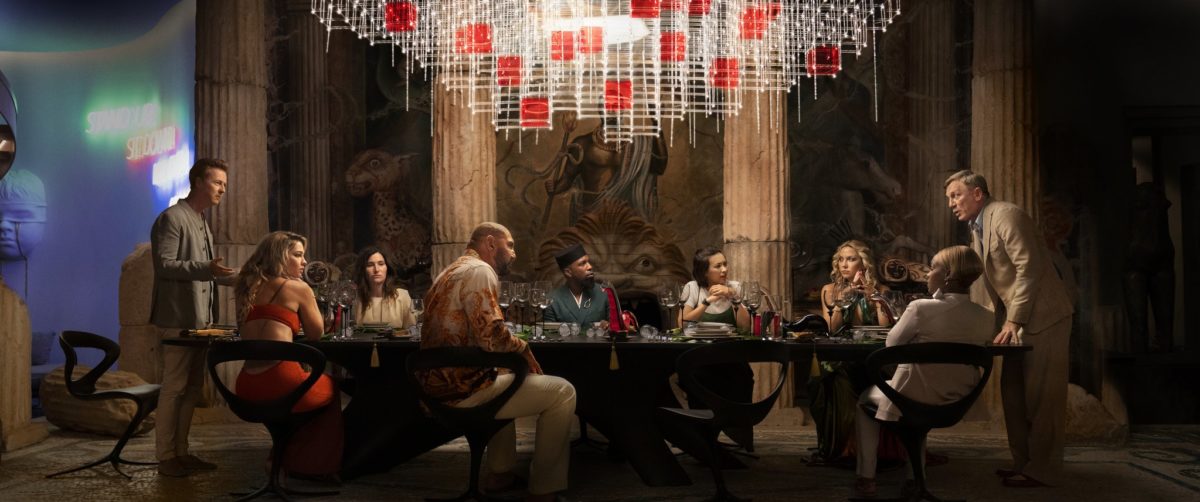
Despite the critical, commercial, and Oscar-nom success of the first film, Rian Johnson’s sequel to Knives Out will arrive on Netflix––though here’s hoping alongside a healthy theatrical run. Daniel Craig returns as the southern private investigator Benoit Blanc, though this Greece-set follow-up features an entirely new cast and mystery. With a stellar ensemble of Dave Bautista, Ethan Hawke, Kate Hudson, Kathryn Hahn, Janelle Monáe, Leslie Odom Jr., Edward Norton, and Jessica Henwick, expectations are high for the whodunnit follow-up. – Erik N.
Living (Oliver Hermanus; Dec. 23)
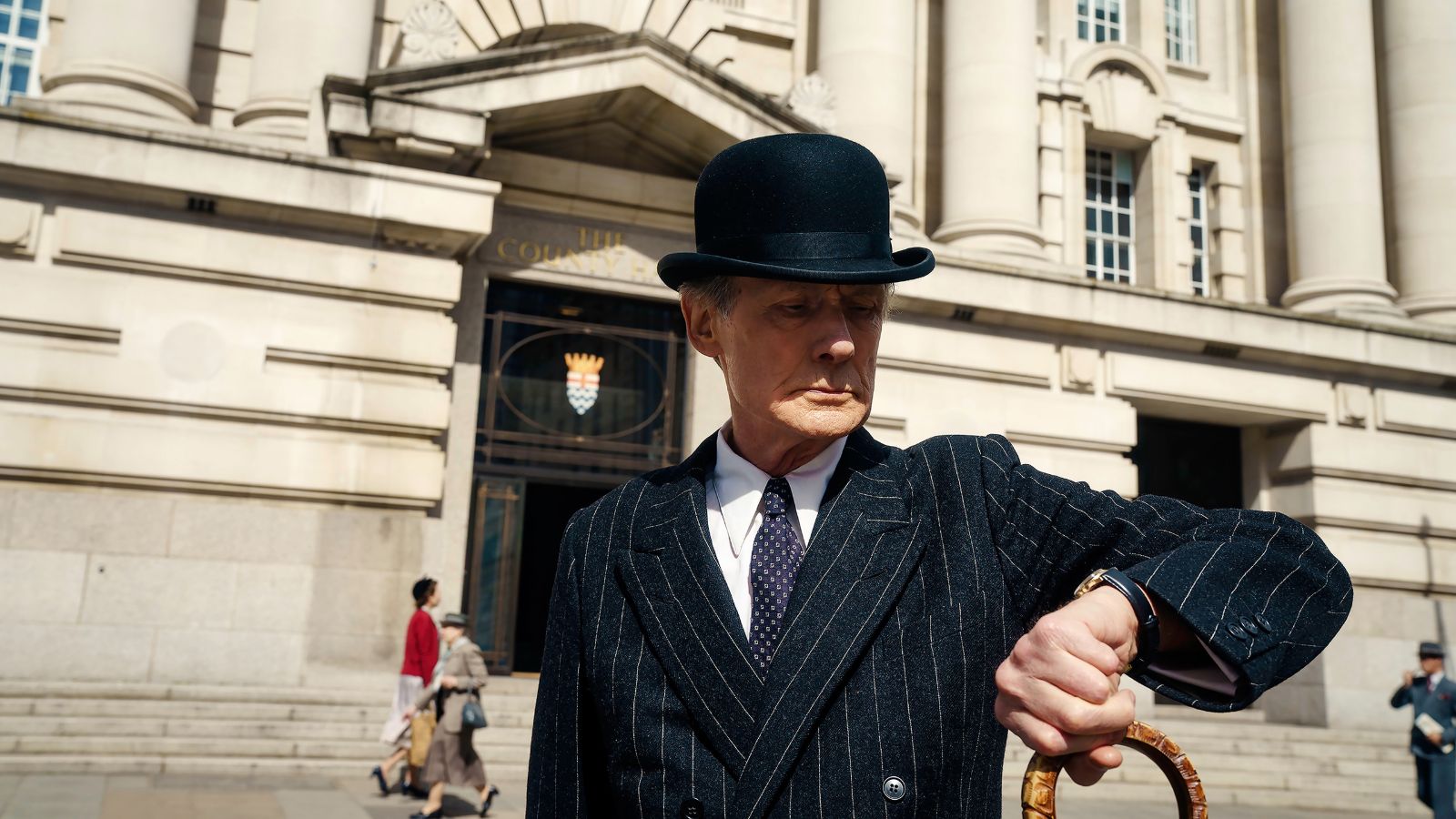
Let us then use this space to celebrate Bill Nighy. The Surrey-born performer made a name for himself in the National Theater in the ’80s & ’90s before exploding on the worldwide film stage in the early 2000s with scene-stealing turns in Love Actually, Underworld, and the Pirates of the Caribbean sequels. In the decades since he’s only widened his scope of performance and general recognition. Which makes Living, written by the great Kazuo Ishiguro and directed by Oliver Hermanus, a quite lovely inflection point for the lifelong thespian. It’s quite possible he’s never been better. – Dan M. (full review)
Corsage (Marie Kreutzer; Dec. 23)

In Corsage, Vicky Krieps delivers a performance brimming with salty despondency and inner life. Gasping for breath in the garment from which this film takes its title, the Luxembourgish actress stars as Elisabeth Eugenie, the 19th-century Hungarian queen and Hapsburg empress tasked with quietly presiding over a kingdom in its early stages of unraveling. The director is Marie Kreutzer, an Austrian filmmaker whose previous effort, The Ground Beneath My Feet, told another story of a woman and an unraveling. While that film competed for the Golden Bear, Corsage took Kreutzer all the way to Cannes, making a splash in Un Certain Regard and justifiably rewarding Krieps for her work. – Rory O. (full review)
Babylon (Damien Chazelle; Dec. 25)
Despite the misstep that was his ersatz musical La La Land, Damien Chazelle showed quite a bit of promise with Whiplash and First Man, qualities that hopefully carry into Babylon. Led by Margot Robbie, Brad Pitt, and Diego Calva, the Jazz Age-set epic is rumored to veer into heavily R-rated territory as it captures Hollywood’s transition from silents to talkies. With not even a still yet released, hopefully Paramount will start soon teasing what’s in store ahead of the late-December release. – Jordan R.
All the Beauty and the Bloodshed (Laura Poitras; TBD)

While not exactly arriving with the same secrecy as Laura Poitras’ surprise Citizenfour unveiling at the New York Film Festival, the filmmaker’s latest work seems to have quickly emerged as the most intriguing documentary of this fall season. Stopping by Venice, TIFF, and NYFF (where it is the Centerpiece selection), the film tells the story of Nan Goldin’s fight against the Sackler family dynasty’s role in the opioid epidemic. Recently picked up by NEON for a fall release, expect to hear quite a lot more about All the Beauty and the Bloodshed. – Leonard P.
White Noise (Noah Baumbach; TBD)
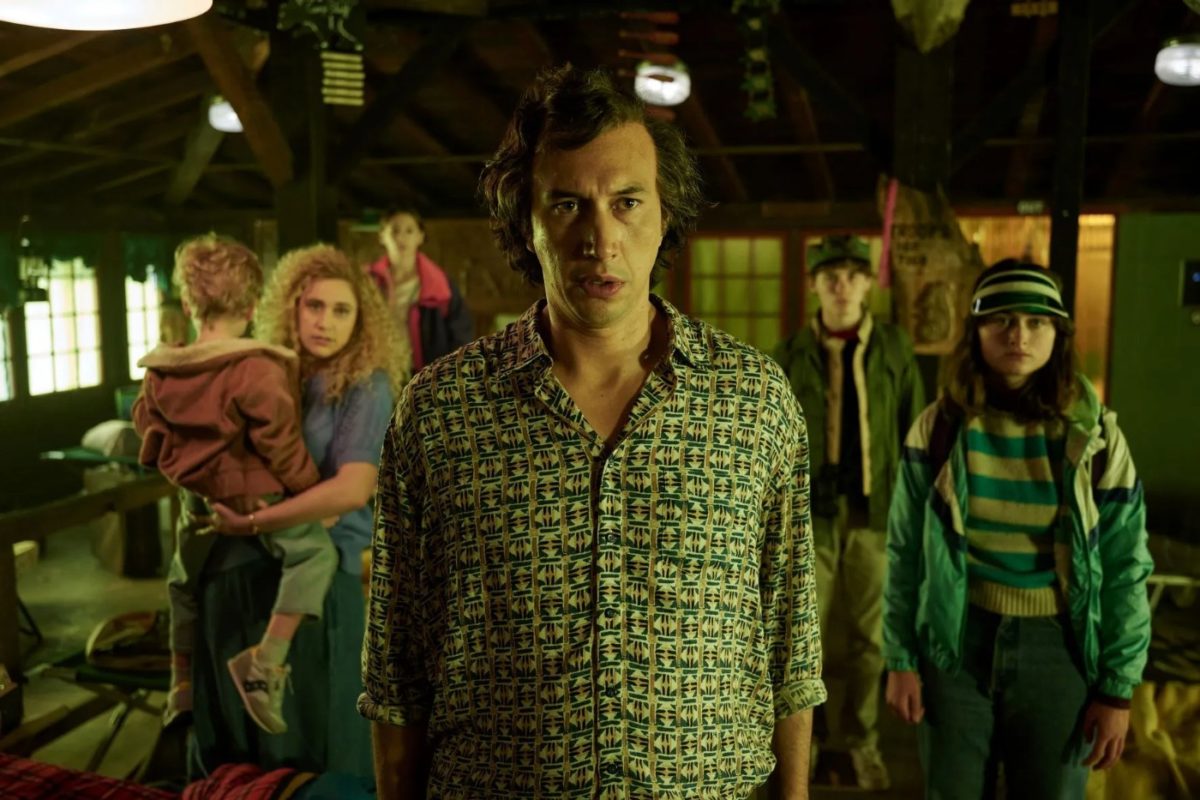
The first feature to ever open both the Venice and New York Film Festival, Noah Baumbach’s adaptation of the Don DeLillo masterwork White Noise arrives with much anticipation. Led by Adam Driver and Greta Gerwig, as well as featuring a score by Danny Elfman, here’s hoping Baumbach’s first adaptation properly translates all the darkly funny and existential dread from DeLillo’s story, wherein a family experiences a toxic cloud hanging over their every move––indeed both literally and metaphorically.
The Whale (Darren Aronofsky; TBD)
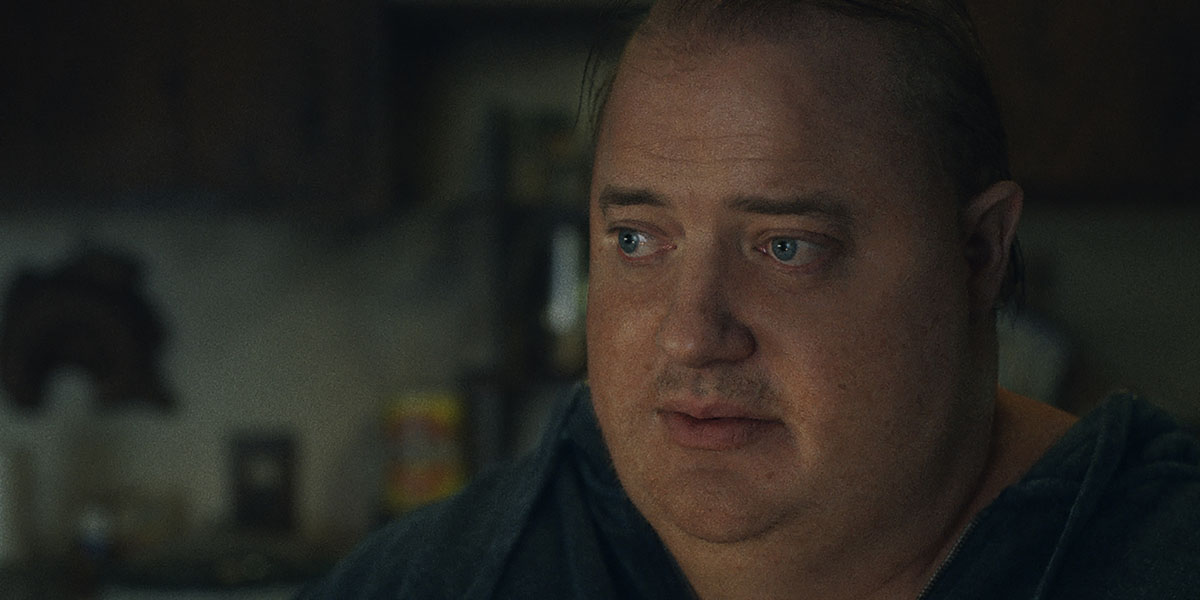
There’s an odd pattern emerging in Darren Aronofsky’s career: big, ambitious follies (or near-follies) are followed by smaller-scale, redemptive projects, often for an undervalued lead actor, in tandem with its talented and mercurial director. Predictably high-concept, this chamber piece—adapted by Samuel D. Hunter from his play—follows a 600-pound middle-aged English teacher (Brendan Fraser, undergoing a nice second act with Scorsese and Soderbergh too), attempting to reconnect with his estranged 17-year-old daughter. It’s going to be intense and bracing––expect astonishing make-up effects, and one hopes for more discipline than the overwrought mother! – David K.
Honorable Mentions
Even with keeping to 40 films on the list, there’s still more cinema worth seeking out this fall. First up, though not strictly on the movie front, we’re anticipating Lars von Trier’s five-hour, five-part The Kingdom Exodus, which MUBI will be releasing this fall. We also hope a number of Cannes films get autumn releases including Kelly Reichardt’s Showing Up and Claire Denis’ Stars at Noon from A24 as well as De Humani Corporis Fabrica and RM.N. Evangelion: 3.0+1.01 Thrice Upon a Time will also finally get a theatrical run following its digital release last year. Sony Pictures Classics have also confirmed one-week qualifying runs for One Fine Morning and Return to Seoul.
Check out more films to have on your radar below.
- Peter Von Kant (Sept. 2)
- Pinocchio (Sept. 8)
- Dos Estaciones (Sept. 9)
- The Silent Twins (Sept. 16)
- Casablanca Beats (Sept. 16)
- The Woman King (Sept. 16)
- God’s Country (Sept. 16)
- Don’t Worry Darling (Sept. 23)
- Nothing Compares (Sept. 23)
- My Imaginary Country (Sept. 23)
- Athena (Sept. 23)
- Vesper (Sept. 30)
- Bros (Sept. 30)
- Argentina, 1985 (Sept. 30)
- Mona Lisa and the Blood Moon (Sept. 30)
- Amsterdam (Oct. 7)
- Call Jane (Oct. 14)
- Piggy (Oct. 14)
- Holy Spider (Oct. 28)
- Please Baby Please (Oct. 28)
- Utama (Nov. 4)
- Amsterdam (Nov. 4)
- Black Panther: Wakanda Forever (Nov. 11)
- There There (Nov. 18)
- Devotion (Nov. 23)
- Framing Agnes (Dec. 2)
- Guillermo Del Toro’s Pinocchio (Dec. TBD)
- Bardo (or False Chronicle of a Handful of Truths) (TBD)
- Causeway (TBD)
- The Pale Blue Eye (TBD)
